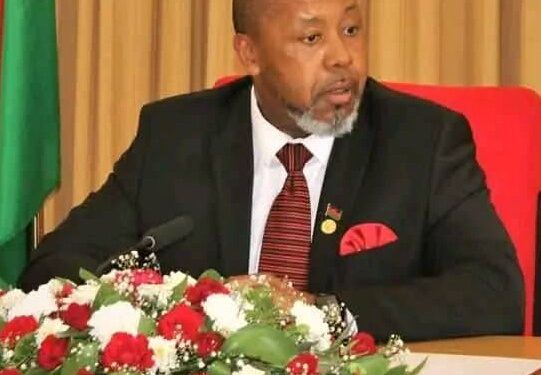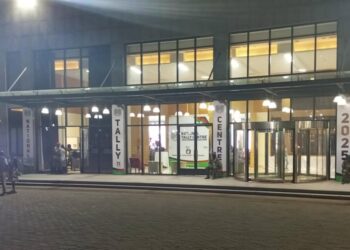The tragic death of Malawi’s Vice President Dr. Saulos Klaus Chilima in a plane crash on June 10, 2024, sent shockwaves across the nation. Alongside him, eight other Malawians perished in the same accident at Nthungwa in Nkhata Bay, leaving the country in collective mourning.
As Malawi prepares to commemorate one year since this devastating loss, a troubling development has emerged: the UTM is attempting to co-opt the memorial in what appears to be a politically motivated campaign. This opportunistic, callous and disparaging move undermines the gravity of national remembrance and disrespects both the Chilima family and the citizens of Malawi.
Government must take the lead in the national commemoration of Dr. Chilima. Not only was he a Vice President of the Republic and a statesman, but he also represented a unifying figure whose contributions transcended political affiliations.
Conversely, UTM’s attempts to politicize this solemn occasion are both inappropriate and divisive. National tragedies must be commemorated with dignity, unity, and sober leadership, and not hijacked for partisan gains.
Dr. Chilima was a national leader, not a party pawn. He was not merely the torchbearer of UTM; he was a serving Vice President of the Republic of Malawi. His position as the second-highest official in government meant that his duty and service extended to every Malawian, regardless of political affiliation.
The late Vice President represented the nation in bilateral engagements, led critical government reforms, and played a key role in shaping Malawi’s economic and governance agenda. His loss, therefore, was not solely a UTM tragedy; it was a national tragedy.
This makes it imperative that his memorial be treated as a state function. Allowing any one political party, particularly the one he helped found, to dominate the narrative around his death risks narrowing his legacy.
While UTM has every right to honor its founder, it must do so respectfully and in partnership with the government and the Chilima family. Hijacking the event for political mileage, as UTM appears to be doing, undermines the very ideals Chilima stood for: integrity, service, and unity.
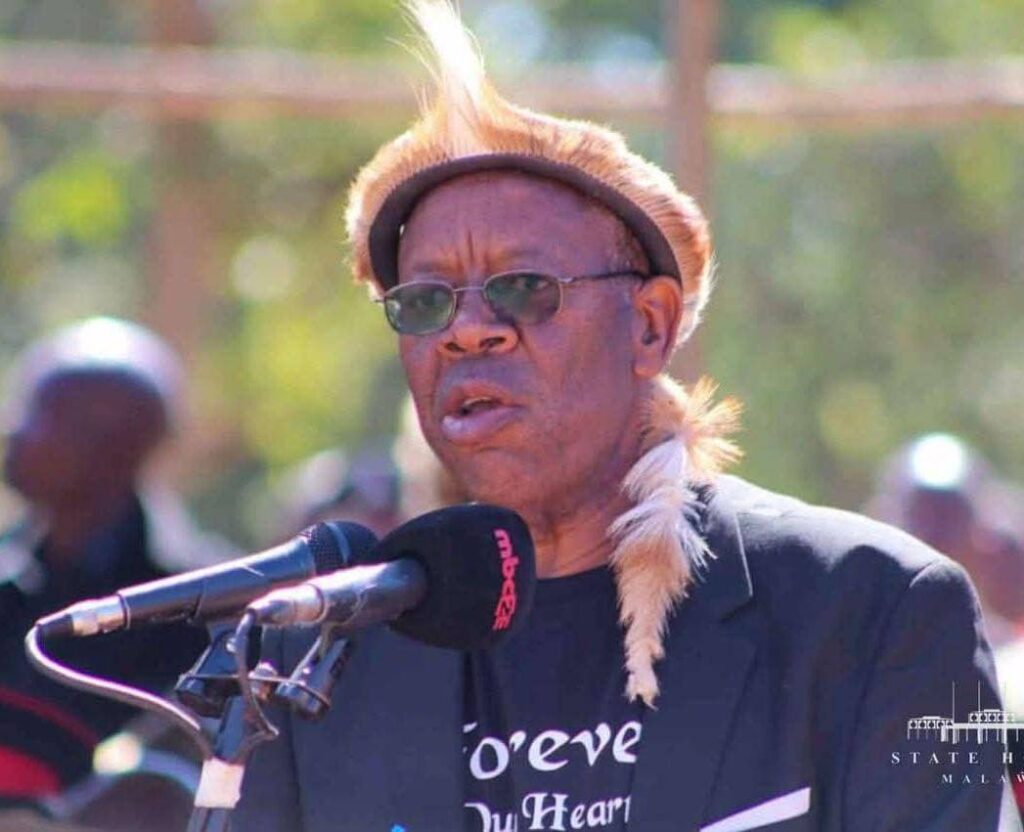
The most poignant rebuttal to UTM’s approach comes not from political opponents, but from Chilima’s own family. Dr. Ben Chilima, brother to the late Vice President, has categorically stated that the family is organizing the memorial and has asked opposition political parties, including the UTM, not to hijack it for campaign purposes.
Dr. Ben Chilima, a very upright man of sober thinking, has criticized UTM’s leadership, including party president Dalitso Kabambe, for ignoring family efforts such as the launch of the Saulos Chilima Foundation, where neither Kabambe nor other senior officials showed up.
It is both ironic and hypocritical for UTM to ignore the family in times of such initiatives, only to emerge during emotionally charged moments to claim ownership of the Chilima legacy. Respecting the wishes of the bereaved family is not just good manners; it is an ethical obligation, particularly in African culture where family plays a central role in honoring the deceased.
The government’s plans to construct a memorial pillar at the site of the crash is both commendable and appropriate. Unlike UTM’s unilateral moves, the government’s approach aims to honor all nine victims of the crash, including former First Lady Shanil Muluzi. This inclusive remembrance is more reflective of the tragedy’s scope and the nation’s loss.
UTM’s parallel plans to organize candlelight vigils and other politically tinged events suggest a troubling desire to turn this national grief into campaign fodder. This is particularly concerning. Attempts by opposition politicians to snub government-led unveiling of the memorial pillar should be seen for what they are: selfish political gambits masquerading as solidarity.
Malawi is no stranger to politically charged funerals and memorials. We have seen how such events can spiral into chaotic confrontations, deepen political divisions, and ultimately dishonor the deceased.
This moment calls for unity. The Chilima tragedy offers Malawi an opportunity to come together in mourning and reflection, not to draw battle lines or score cheap political points. Government leadership provides the necessary neutrality and authority to manage such a delicate national event.
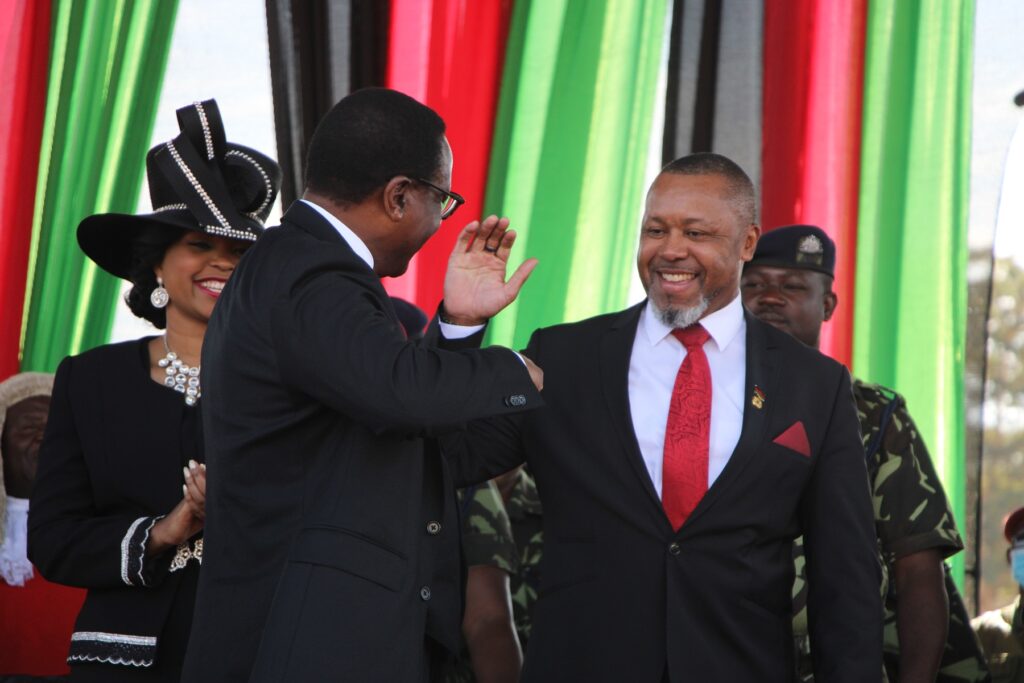
It is important to recognize the genuine bond that existed between President Dr. Lazarus McCarthy Chakwera and Vice President Chilima. Despite the challenges within their alliance, the two leaders maintained mutual respect and worked closely for the greater good of the nation.
Chilima’s Vice Presidency under Chakwera was a period marked by collaboration, not conflict. This was in stark contrast to his tenure under President Arthur Peter Mutharika, when he faced hostility and political sabotage.
To now see opposition parties, including UTM and DPP, attempting to rewrite history and drive a wedge between Chakwera and Chilima in death is both offensive and dishonest. If anything, Chilima would have likely supported Chakwera’s continued presidency. Exploiting his death to weaken and undermine government efforts is not only unethical but also a betrayal of Chilima’s legacy.
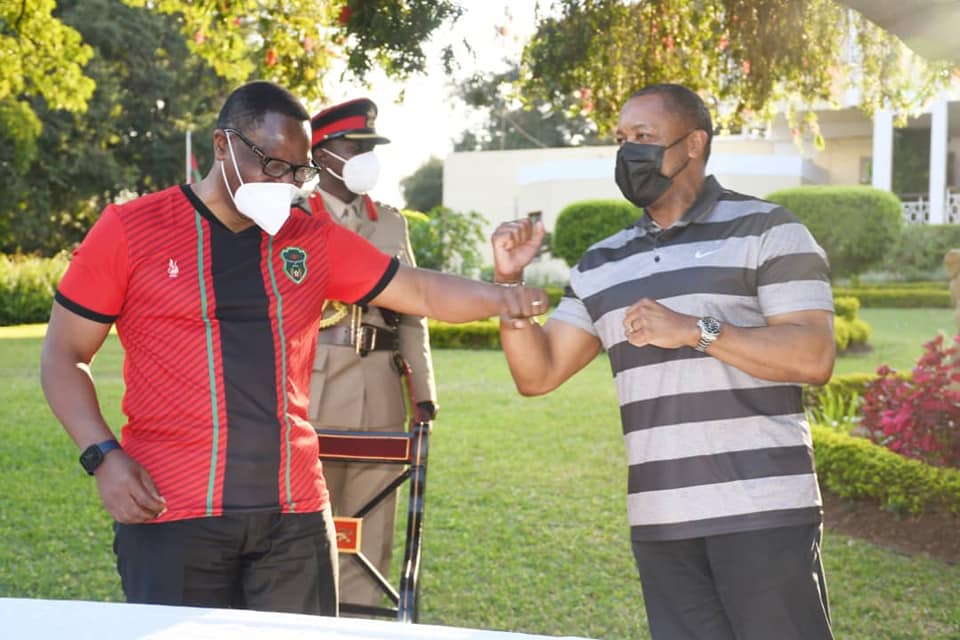
Malawians have rightly not taken kindly to UTM’s actions. Social media platforms are flooded with criticism of the party’s attempts to politicize the memorial. Commentators have described the move as “cheap politics,” “a distraction,” and “disrespectful.” The consensus is clear: this is not the time for political games.
As one viral post aptly put it: “The pillar is not a memorial for SKC alone but also for the eight others. The government will go ahead with or without the blessings of UTM.” This sentiment reflects a broader national fatigue with political opportunism and a yearning for genuine leadership and empathy.
If UTM continues with its current approach, it risks turning a solemn occasion into a battlefield of political rivalry. The consequences of such divisiveness could be severe. The last thing the nation needs is a politicized memorial that deepens societal fissures.
Instead, opposition political parties, including the UTM, should focus on supporting government efforts, amplifying the messages of peace and unity, and ensuring that the legacy of Chilima is preserved in a manner befitting a national icon. This requires humility, restraint, and above all, a commitment to national interest over partisan ambition.
Dr. Saulos Klaus Chilima was a servant of the people, a national reformist, and a symbol of hope for many Malawians. His death must not be used as a tool for political opportunism. UTM and other opposition political actors must respect the family’s wishes, honor the legacy of their late founder with dignity, and contribute to a unified national remembrance.
Malawi owes it to Chilima, his family, and all the other victims of the crash to mourn honorably, to remember respectfully, and to rise above the pettiness of politics. This is not just a test of leadership; it is a test of our national character.
May the Soul of Dr. Saulos Klaus Chilima Continue Resting in Peace.


